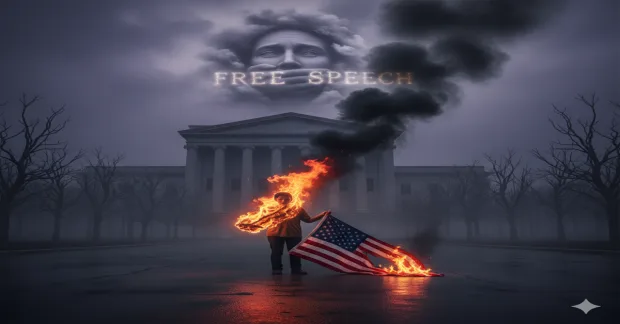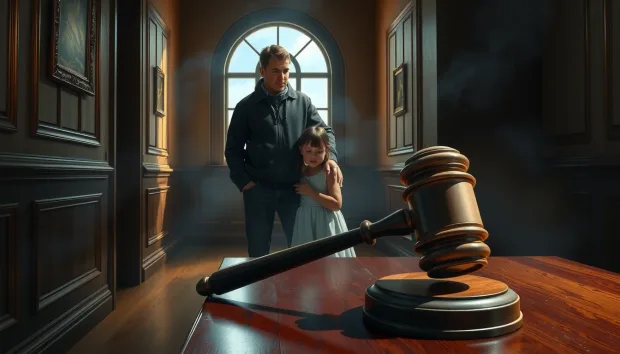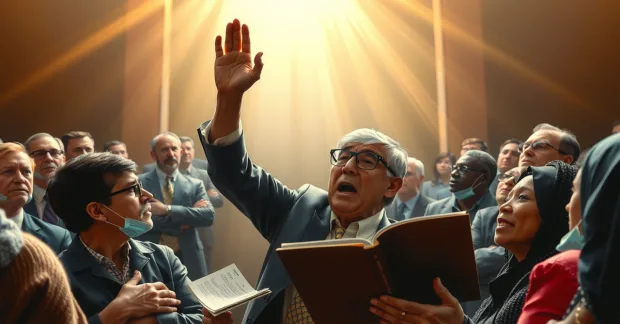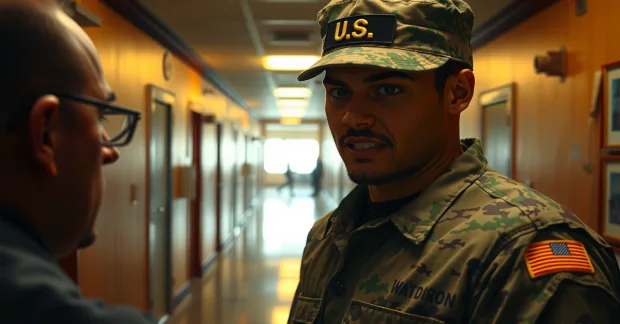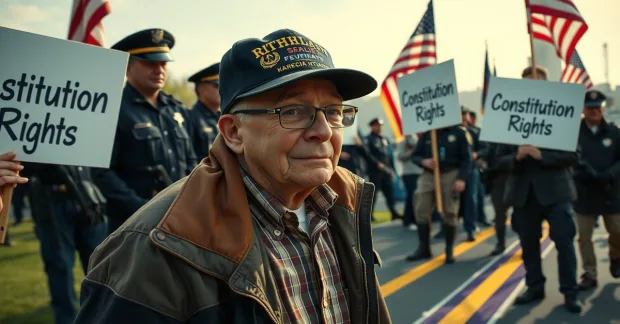
Just as the sun rises and sets, the debate over the legality of crashing weddings continues to spark curiosity and controversy. In this comprehensive exploration of the legal intricacies surrounding uninvited guests at weddings, trespassing, disorderly conduct, and potential theft come into play as individuals consider crashing a wedding. Delve into the legal ramifications of attending a wedding uninvited and discover how to navigate the fine line between crashing a celebration and respecting venue rights.
Key Takeaways:
- Wedding crashing is not explicitly illegal: While there is no specific law against wedding crashing, it can lead to legal consequences.
- Trespassing laws apply: Entering a private event without permission can be considered trespassing, potentially resulting in charges.
- Disorderly conduct may apply: Causing a disturbance or disrupting the event can lead to charges of disorderly conduct.
- Theft is a possibility: Consuming food or drinks without permission or stealing items from the event could result in theft charges.
- Respect the couple and event: It is important to respect the privacy and wishes of the couple getting married by refraining from attending events without an invitation.
- Show consideration and courtesy: Displaying respect towards others helps avoid legal trouble and maintain positive relationships.
- Be mindful of potential legal consequences: Individuals attending a wedding uninvited may face legal ramifications based on their actions and behavior at the event.

The Allure of Wedding Crashing
The thrill of the uninvited guest
For some, the thrill of crashing a wedding lies in the excitement of being where they shouldn’t be, mingling with strangers, and experiencing the exhilaration of the unknown. The rush of sneaking past security or blending in seamlessly with the crowd can be an adrenaline-fueled adventure that appeals to those seeking a bit of spontaneity in their lives. However, what starts as a fun and daring escapade can quickly turn into a legal nightmare if not careful.
While the idea of being an uninvited guest at a glamorous event may sound enticing, the consequences of trespassing on private property can be severe. Individuals who choose to crash a wedding risk facing charges of trespassing if they enter the venue without permission and refuse to leave when asked by the hosts or venue staff. What begins as a daring adventure can end in potential legal trouble and ruin the celebratory atmosphere for the newlyweds and their guests.
Ultimately, respecting the privacy and wishes of the couple getting married should take precedence over the thrill of crashing a wedding. The allure of the uninvited guest may be tempting, but the potential legal ramifications and negative impact on the event far outweigh the temporary excitement of crashing a wedding.
The temptation of free food and drinks
Any individual considering crashing a wedding may be enticed by the thought of indulging in free food and drinks without spending a penny. The allure of enjoying a lavish spread and top-shelf beverages at someone else’s expense can be a tempting proposition for those looking to score a free meal. However, the temptation to partake in the festivities without an invitation can lead to serious legal consequences.
Free food and drinks may seem like a harmless perk of crashing a wedding, but consumption without permission can result in charges of theft if the individual unlawfully takes or uses someone else’s property. The allure of a free meal may pale in comparison to the hefty fines and potential legal repercussions that could follow. It’s crucial to remember that respect for others’ property and boundaries should always take precedence over the temptation of a complimentary banquet.
Defining Wedding Crashing
You may have heard of the term “wedding crashing” being thrown around, but what does it really mean in the eyes of the law? Let’s examine into the legal aspects of crashing a wedding and the potential consequences that come with it.
The lack of a clear legal definition
The legal landscape surrounding wedding crashing is not black and white, leading to debates on the legality of attending a wedding uninvited. While there is no specific law that explicitly states “wedding crashing” as a criminal offense, there are legal ramifications to consider if one chooses to crash a wedding. One major concern is the issue of trespassing, as entering a private event without an invitation could classify one as a trespasser.
The gray area between trespassing and social faux pas
The line between crashing a wedding and committing a social faux pas can be a blurry one. Disorderly conduct can come into play if the uninvited guest causes a disturbance or disrupts the event in any way. Theft is another potential issue if items are taken without permission. Navigating this gray area requires understanding the boundaries of social norms and legal implications.
The boundaries of crashing a wedding are not always clear, and individuals must tread carefully to avoid legal repercussions while respecting the privacy of couples on their special day.
Venue Rights and Private Property
Now, let’s examine into the legal concept of private property and trespassing in the context of crashing a wedding.
The legal concept of private property and trespassing
Property rights are a fundamental aspect of the law, and entering someone’s private event without an invitation constitutes trespassing, a violation of their property rights. In the case of crashing a wedding, if the uninvited guest refuses to leave when asked, they could face potential charges of trespassing, which is a serious offense. The concept of trespassing is rooted in the idea of respecting personal boundaries and property ownership rights, highlighting the importance of obtaining permission before entering private spaces.
In the context of a wedding venue,
The venue’s responsibility to protect guests and property
property rights extend to the venue itself. The venue has a responsibility to protect its guests and property from unauthorized individuals who may disrupt the event or cause harm. This includes ensuring that only invited guests are in attendance and taking action against any individuals who trespass or engage in disorderly conduct. The venue’s duty to protect its guests and property is necessary for maintaining a safe and secure environment for the wedding celebration. Unauthorized individuals who attend a wedding without an invitation not only violate the property rights of the hosts but also pose potential risks to the safety and well-being of the guests.
The concept of venue rights underscores the importance of upholding property laws and regulations to safeguard the privacy and security of private events. Wedding venues play a crucial role in enforcing their property rights by taking appropriate measures to prevent unauthorized individuals from crashing a wedding and ensuring the safety and enjoyment of the guests in attendance. By understanding and respecting the legal boundaries of private property, individuals can avoid legal consequences and uphold the integrity of special occasions like weddings.
The Legal Consequences of Wedding Crashing
Trespassing charges and penalties
Penalties: After sneaking into a wedding uninvited, crashing individuals can face the harsh reality of trespassing charges. In the eyes of the law, trespassing involves entering someone’s private property without authorization, a serious offense that can lead to legal repercussions. If a crasher refuses to leave when asked by the hosts or venue staff, they may find themselves facing potential charges of trespassing.
To avoid these penalties, it is crucial to respect the boundaries of private events and refrain from attending without an invitation. It is a matter of both legal consequences and common courtesy to respect the wishes of the couple and their chosen guests.
Disorderly conduct and its legal implications
Disorderly: In addition to trespassing charges, crashing a wedding can also result in accusations of disorderly conduct. Disorderly conduct laws vary by jurisdiction, but generally aim to curb behavior that disrupts the peace and order of a social gathering. If the uninvited guest causes a disturbance or interferes with the event in any way, they could be held accountable for their actions.
Theft and Property Damage
Many individuals may not realize that unauthorized consumption of food and drinks at a wedding can actually be considered theft.
Unauthorized consumption of food and drinks as theft
While indulging in a delicious meal or refreshing beverage may seem harmless, if done without permission, it can have legal consequences. By partaking in these offerings without being invited, individuals are crucially taking something that does not belong to them, which falls under the category of theft. This act not only displays a lack of respect for the hosts but can also lead to potential charges if caught.
When considering crashing a wedding, damage to property is another concern that can result in legal repercussions.
Damage to property and potential legal repercussions
A person who attends a wedding uninvited and causes damage to the venue or any items within it may find themselves facing charges of property damage. This could include anything from breaking glassware to destroying decorations. These actions not only disrupt the event but also result in financial loss for the hosts or venue. It is crucial to remember that damaging property without authorization is a serious offense that can lead to significant legal trouble.
A better understanding of the legal implications of theft and property damage at a wedding can help individuals make informed decisions about crashing such events. It is crucial to respect the property of others and refrain from taking or destroying items without permission. By showing consideration and accountability, individuals can avoid finding themselves in situations that lead to legal consequences and uphold the integrity of the special occasion.
Disrupting the Peace
Once again, the issue of wedding crashing turns murky as we probe disorderly conduct and disturbing the peace. For individuals who choose to attend a wedding uninvited, there is a fine line between harmless curiosity and disruptive behavior that could lead to legal trouble.
Disorderly conduct and disturbing the peace
At a wedding, being uninvited can quickly turn into a legal matter if the uninvited guest causes a disturbance or disrupts the event in any way. Disorderly conduct laws vary by jurisdiction but generally prohibit behavior that disturbs the peace and order of a gathering. The disruption of a sacred and joyous occasion can have serious consequences for the crasher.
The impact on the wedding party and guests
For the unwitting wedding crasher, their presence can have unforeseen consequences for the wedding party and guests. Not only does it disrupt the carefully planned event, but it can also cause discomfort and tension among those in attendance. The couple getting married may feel violated and their special day tainted by the intrusion. The impact on the overall atmosphere of the event can be significant, turning a joyful celebration into a tense and uncomfortable affair.
Wedding attendees may feel unsettled by the presence of an uninvited guest, unsure of their intentions and feeling their privacy invaded. Ultimately, crashing a wedding not only has legal implications but also has a detrimental effect on the emotional well-being of those involved.
Respect for the Happy Couple
The importance of respecting the couple’s wishes
Keep in mind that crashing a wedding is not just about the legal implications; it’s also about respecting the couple’s wishes on their special day. When a couple decides to invite certain individuals to share in their joy, it is a reflection of their desire for those specific people to be present. By disregarding their wishes and showing up uninvited, you are not only potentially breaking the law but also disrespecting the couple’s choice of who they want to celebrate with.
The role of courtesy in avoiding legal issues
Courtesy plays a crucial role in how we interact with others, especially when it comes to attending private events like weddings. Showing consideration for the couple’s feelings, as well as the effort and planning that went into organizing their big day, is crucial. By understanding the boundaries set by the couple and respecting their privacy, you can avoid potential legal trouble and negative consequences.
Furthermore, acting with courtesy towards others is a fundamental aspect of maintaining positive relationships and fostering goodwill within your community. By refraining from attending events to which you have not been invited, you demonstrate empathy and understanding towards the hosts and their guests.
The Venue’s Role in Preventing Wedding Crashing
Security measures and guest list management
All weddings should have security measures in place to prevent unwanted guests from crashing the event. One aspect of this is carefully managing the guest list to ensure that only invited individuals are granted access to the venue. This can include using RSVPs, checking invitations at the door, and having security personnel to monitor the event.
Wedding venues play a crucial role in maintaining the security of the event. By implementing strict security measures and ensuring that the guest list is closely monitored, venues can help prevent potential wedding crashers from disrupting the celebration.
It is important for venues to communicate effectively with the couple and event planners to understand the expected guest list and any potential changes. By staying informed and attentive to details, venues can assist in creating a safe and enjoyable environment for the wedding party and guests.
Communication with guests and crashers
Effective communication with both invited guests and potential crashers is key to preventing unwanted incidents at a wedding. Venues must clearly communicate the event’s policies and procedures to guests, including information on RSVP requirements, check-in procedures, and guidelines for behavior.
For instance, venues can utilize signage and staff members to communicate important information to guests, such as the location of the event, parking instructions, and any specific rules or regulations. By maintaining open lines of communication, venues can help ensure that guests understand and adhere to the event’s guidelines.
The Ethics of Wedding Crashing
The moral implications of crashing a wedding
To address the ethical dilemmas surrounding wedding crashing, one must consider the impact of their actions on the couple’s special day. Wedding are intimate and sacred occasions, where loved ones come together to celebrate the union of two individuals. Interrupting such an event without invitation not only shows a lack of respect for the couple’s privacy but also disrupts the harmony and sanctity of the occasion.
Moreover, wedding crashing raises questions about personal integrity and honesty. Attending a wedding uninvited involves deceiving the hosts and disregarding their wishes. It is important to remember that trust and good faith are fundamental in any relationship, and violating these principles to attend a social gathering can strain one’s moral compass.
Ultimately, the decision to crash a wedding boils down to individual values and principles. Respecting the boundaries and wishes of others, especially on important occasions like weddings, reflects one’s character and ethical standards. Choosing to crash a wedding may lead to feelings of guilt, regret, and damage to personal integrity.
The impact on relationships and social norms
To investigate deeper into the impact of wedding crashing on relationships and societal norms, one must consider the repercussions of such actions. Attending a wedding without an invitation can strain ties with the couple, their families, and mutual friends. The breach of trust and invasion of privacy can create rifts in relationships that may be challenging to mend.
With the rise of social media and viral content, the consequences of crashing a wedding can extend beyond personal relationships. News of disruptive behavior or unauthorized attendance at a wedding can tarnish one’s reputation and social standing. In a society where respect and consideration for others are valued, disregarding social norms by crashing a wedding can lead to alienation and exclusion from social circles.
Wedding crashing not only jeopardizes personal relationships but also undermines the sanctity of celebrations and gatherings. By disregarding invitations and boundaries, individuals risk damaging their reputations and social connections in the long run. Respecting the privacy and wishes of others is crucial in maintaining healthy relationships and upholding societal norms.
Real-Life Examples of Wedding Crashing
Famous instances of wedding crashing
After delving into the legal aspects of crashing a wedding, it’s intriguing to uncover some real-life cases where individuals have attempted to crash weddings with bold and often hilarious consequences. One famous instance involves a well-known celebrity sneaking into a wedding reception uninvited, causing a stir among guests and leading to a memorable evening that made headlines. This daring move sparked debates on the boundaries of privacy and the rights of individuals to crash private events, raising questions on the legal implications of such actions.
Instances like these highlight the risks and potential repercussions of crashing a wedding without an invitation. While it may seem like a harmless prank or a spontaneous adventure, the reality is that individuals who choose to attend events uninvited may face legal consequences related to trespassing, disorderly conduct, and even theft, depending on their behavior at the event. These real-life examples serve as cautionary tales for those tempted to crash a wedding for a thrill or a laugh.
Ultimately, these famous instances of wedding crashing shed light on the importance of respecting the privacy and wishes of the hosts and guests. While crashing a wedding may seem like a daring escapade, it is crucial to consider the legal implications and potential repercussions of such actions before making the decision to attend an event uninvited.
Personal anecdotes and lessons learned
After exploring famous instances of wedding crashing, it is imperative to consider the personal anecdotes and lessons learned by individuals who have experienced the consequences of attending a wedding uninvited. These personal stories offer valuable insights into the potential risks and pitfalls of crashing a wedding, highlighting the importance of respecting boundaries and showing consideration for others’ privacy and wishes.
Real-Life: These personal anecdotes serve as reminders that crashing a wedding is not just a harmless prank but can lead to legal trouble and strained relationships with those involved. By reflecting on these lessons learned, individuals can make informed decisions and avoid making impulsive choices that may have lasting consequences.
The Psychology of Wedding Crashing
The motivations behind wedding crashing
Behind the thrill of crashing a wedding lies a myriad of motivations that drive individuals to partake in such acts. Some crashers may seek the excitement of infiltrating a private event, relishing in the element of surprise and the challenge of blending in with the guests. For others, the desire for free food and drinks may be a primary incentive, leading them to bypass social norms and etiquette in pursuit of their own gratification. Additionally, some crashers may be motivated by a sense of rebellion or a desire to disrupt the status quo, seeking to challenge traditional notions of exclusivity and privilege.
Despite these motivations, it is imperative to recognize the ethical implications of crashing a wedding, as it entails disregarding the wishes and boundaries set by the hosts and potentially causing distress to the couple and their guests. While the allure of adventure and spontaneity may initially seem appealing, the consequences of trespassing and disrupting a private event can have serious legal and social repercussions.
It is crucial for individuals to consider the implications of their actions and respect the privacy and consent of others, choosing to engage in respectful and lawful behavior rather than seeking excitement at the expense of others.
The psychological effects on crashers and guests
Psychological effects of crashing a wedding can have significant impacts on both the crashers themselves and the legitimate guests in attendance. Crashers may experience feelings of guilt, anxiety, or thrill as they navigate the event, constantly aware of the potential repercussions of their actions. On the other hand, legitimate guests may feel a sense of invasion and discomfort upon discovering an uninvited individual among them, with their sense of security and privacy compromised.
Furthermore, the tension and disruption caused by a wedding crasher can lead to heightened emotions and conflicts among guests, tarnishing the celebratory atmosphere of the event and potentially causing lasting damage to relationships. These psychological effects can extend beyond the event itself, impacting the way individuals perceive trust, boundaries, and social interactions in the future.
This highlights the importance of upholding respect, honesty, and integrity in all social interactions, as the consequences of disregarding these principles can have far-reaching effects on individuals and communities.
Preventing Wedding Crashing
Despite the excitement and joy surrounding weddings, the possibility of unwanted guests crashing the event is a common concern for couples and venues alike. To protect their special day, couples can implement various strategies to ensure only invited guests are in attendance.
Strategies for couples to protect their special day
Crashing a wedding can be a nightmare scenario for couples, disrupting the harmony of their celebration. To prevent this, couples can take proactive measures such as hiring security personnel to monitor entrances and verify guests’ identities. Additionally, utilizing RSVP systems and assigning unique passcodes to guests can help deter uninvited individuals from sneaking in unnoticed.
Moreover, couples can communicate with their venue staff to establish a clear protocol for handling uninvited guests promptly and discreetly. By providing guest lists to the venue in advance and outlining specific actions to take in case of a wedding crasher, couples can ensure a smoother and more secure event.
Tips for venues to prevent unwanted guests
Strategies for venues to prevent unwanted guests from crashing weddings include implementing strict guest list policies and checking for invitations at the entrance. Moreover, training staff to recognize suspicious behavior and intervene effectively can help maintain the integrity of the event. This way, venues can protect both their reputation and the privacy of the couples getting married.
- Guest list policies: Enforce strict policies to ensure only invited guests are allowed entry.
- Invitation checks: Verify invitations at the entrance to prevent unauthorized individuals from attending.
- Training staff: Train venue staff to identify and handle potential wedding crashers professionally and discreetly.
The Future of Wedding Crashing
Not all wedding crashers are looking to cause trouble or disrupt an event. Some may simply want to experience the joy of a wedding celebration or feel a connection to the couple tying the knot. However, as we’ve discussed, the legal implications of crashing a wedding can be significant. As the institution of marriage evolves, so too will the concept of wedding crashing.
The evolution of wedding crashing and its legal implications
Legal experts anticipate that as weddings become more personalized and exclusive, the consequences for crashing them may become more severe. With couples investing significant time and resources into creating the perfect day, unauthorized guests could face harsher penalties for intruding on private events. As laws adapt to address changing social norms, the act of wedding crashing may become a riskier endeavor.
The role of technology in preventing wedding crashing
Wedding technology, such as digital RSVP systems and venue security cameras, is playing an increasingly important role in deterring wedding crashers. Couples can now easily track their guest lists and monitor unexpected arrivals, while venues can enhance their security measures to prevent unauthorized access. As technology continues to advance, the likelihood of successfully crashing a wedding undetected is diminishing.
Plus, with the rise of social media and online event platforms, word spreads quickly about unwelcome guests at weddings. Couples and venues can share information and blacklist individuals who have attempted to crash events in the past, making it harder for repeat offenders to go unnoticed. In the future, technology may be the key to ensuring that weddings remain intimate, secure affairs for those who are truly meant to be there.
Summing up
So, after examining the legal aspects of crashing a wedding, it is clear that there are potential consequences for attending a private event without an invitation. While there is no specific law that criminalizes “wedding crashing,” individuals who choose to do so could face charges of trespassing, disorderly conduct, theft, or other offenses depending on their actions at the event. It is important to respect the privacy and rights of the wedding hosts and to refrain from attending events to which you have not been invited.
Ultimately, crashing a wedding is not only a breach of etiquette but also a potential legal issue that could result in criminal charges. By showing consideration and courtesy towards others, individuals can avoid legal trouble and maintain positive relationships with those around them. It is crucial to adhere to the rules and regulations set by the hosts and venue staff to ensure a harmonious and enjoyable wedding celebration for all involved.
Conclusively, while the idea of crashing a wedding may seem adventurous or exciting, it is important to remember the legal implications and potential consequences of such actions. Respecting the boundaries and wishes of the wedding hosts is paramount, and attending events only with a proper invitation is not only a sign of respect but also a way to avoid any legal trouble that may arise from unauthorized entry. By upholding proper etiquette and following the law, individuals can ensure a positive and lawful experience at any wedding celebration.
FAQ
Q: Is it legal to crash a wedding?
A: While there is no specific law against “wedding crashing,” entering a private event like a wedding without an invitation can lead to potential legal consequences such as trespassing.
Q: What is trespassing in relation to crashing a wedding?
A: Trespassing is when an individual enters someone’s property without permission. If a wedding crasher refuses to leave when asked, they could face charges of trespassing.
Q: Can crashing a wedding lead to charges of disorderly conduct?
A: Yes, crashing a wedding and causing a disturbance or disrupting the event can lead to charges of disorderly conduct, which varies by jurisdiction.
Q: Are there potential theft charges associated with crashing a wedding?
A: Crashing a wedding and consuming food or drinks without permission, or stealing items, could result in charges of theft for unlawfully taking someone else’s property.
Q: Are there consequences for attending events without an invitation?
A: Individuals who attend a wedding uninvited and refuse to leave when asked could face legal consequences such as trespassing, disorderly conduct, theft, or other charges based on their actions.
Q: What is the importance of respecting the privacy of a wedding couple?
A: Showing consideration and courtesy by respecting the privacy and wishes of the couple getting married is key to avoiding legal trouble and maintaining positive relationships.
Q: How can one avoid legal trouble related to crashing a wedding?
A: To avoid legal trouble, refrain from attending events to which you have not been invited, and always respect the privacy and wishes of the couple getting married.














